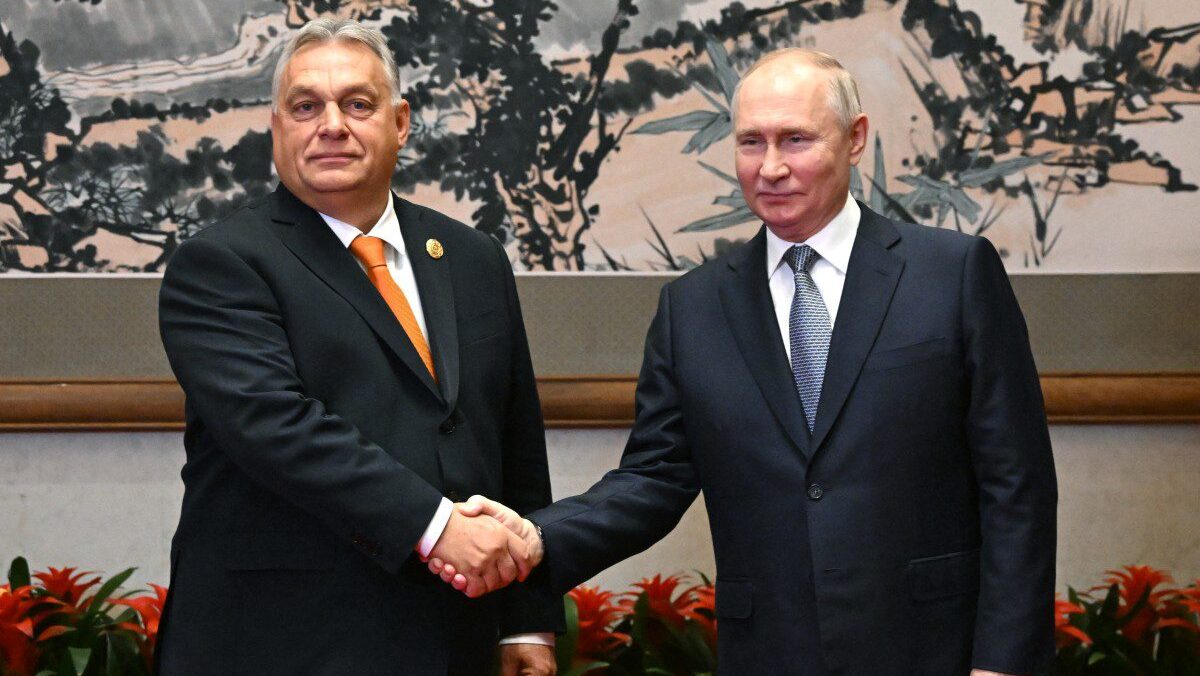
Photo by Grigory SYSOYEV / POOL / AFP
Hungarian PM Viktor Orbán has ruffled feathers in EU and transatlantic circles after reaching out to Russian President Vladimir Putin at a meeting for the Belt and Road Initiative in Beijing Tuesday. Orbán defended the need for de-escalation amid the ongoing war in Ukraine.
During the first in-person Putin has had with a European leader since meeting with Austrian Chancellor Karl Nehammer in April 2022, Orbán in his remarks outlined the necessity of maintaining economic ties with Russia, particularly in energy-related matters.
While both a NATO and EU member, Hungary has been actively working to reach a mutually agreed settlement on the Ukraine issue, contrary to the wishes of Washington and Brussels as Orbán emphasised that “Hungary has never wanted to stand against Russia.”
Also present at the talks were Russian Foreign Minister Sergei Lavrov and Gazprom CEO Alexei Miller were also present at the talks. A Hungarian government spokesman clarified that, among other topics, the leaders discussed the impact of sanctions. Orbán also praised the Russian gas company Gazprom for fulfilling its contracts on the supply of gas to Hungary.
❗️@PM_ViktorOrban held bilateral talks with Russian President Vladimir Putin in Beijing. The two leaders discussed Hungarian-Russian cooperation in the fields of gas and oil supplies and nuclear energy. During the meeting, PM Orbán stressed the importance of peace. He said that… pic.twitter.com/yld9z0memI
— Zoltan Kovacs (@zoltanspox) October 17, 2023
Orbán’s comments almost immediately elicited the condemnation of the U.S. ambassador to Hungary David Pressman, noted for his vocal anti-Fidesz stance, who accused the Hungarian leader of prioritising business links over the plight of Ukraine.
The American ambassador was subsequently slammed by Orbán’s political director Balázs Orbán, who accused the diplomat of hypocrisy, citing America’s increased reliance on Russian nuclear fuel as a counterargument to the diplomat’s condemnation.
Appointed to the role by President Biden in 2022, Pressman has been known for his intense meddling in Hungarian affairs. The United States passed visa sanctions on Hungary in August, mainly due to Budapest’s stance on the Ukrainian war, reflecting Pressman’s approach.
If the question is who's doing business with the Russians, the Americans should turn down the volume. They are buying more than twice as much nuclear fuel alone as they used to, and we have a whole list of them.
— Balázs Orbán (@BalazsOrban_HU) October 17, 2023
We are fed up with @USAmbHungary's hypocrisy! https://t.co/rk3fRZFzB5
Speaking to The European Conservative, Hungarian MEP Balázs Hidvéghi chastised the American ambassador for his heavily politicised remarks saying,
Mr Pressman seems to be acting as a political activist instead of a diplomat. However, shaping Hungarian foreign policy remains outside of his remit. Maintaining good diplomatic relations is not, but apparently that’s something he is not interested in.
Since 2022, Hungary has been rebuked in European circles for its non-antagonistic stance on Russia. In private conversations, Orbán reportedly stated that some sort of Russian triumph in Ukraine was inevitable, and that the country was already a European equivalent of “Afghanistan.”
The Hungarian government has repeatedly defended its stance, saying that, while it has given material support to Ukraine, some form of peace deal was inevitable. They add that the domestic Hungarian economy is dependent on Russian energy supplies.
Orbán’s presence in China as well as continued participation in the Belt and Road Initiative is an additional sticking point in U.S.-Hungarian relations. The Hungarian PM subsequently met with President Xi following his audience with Putin stating that positive economic relations with China were good for Europe.
Budapest remains within the Chinese-led Initiative despite the expected departure of Italy’s government at the behest of pro-Atlantist PM Giorgia Meloni.
